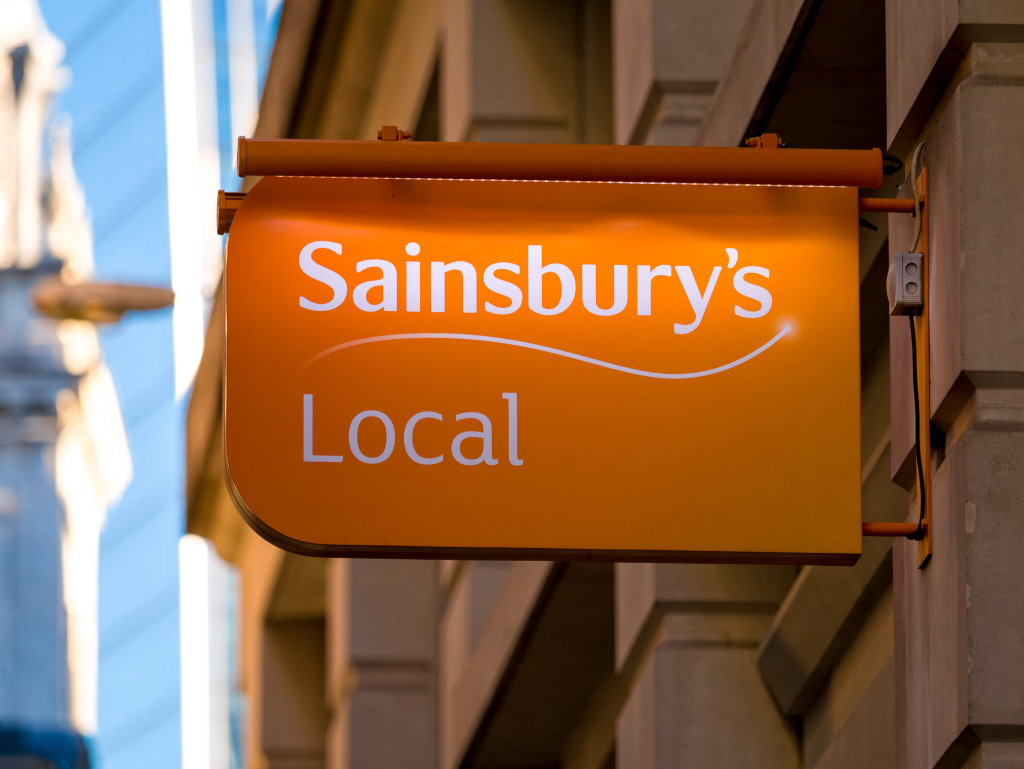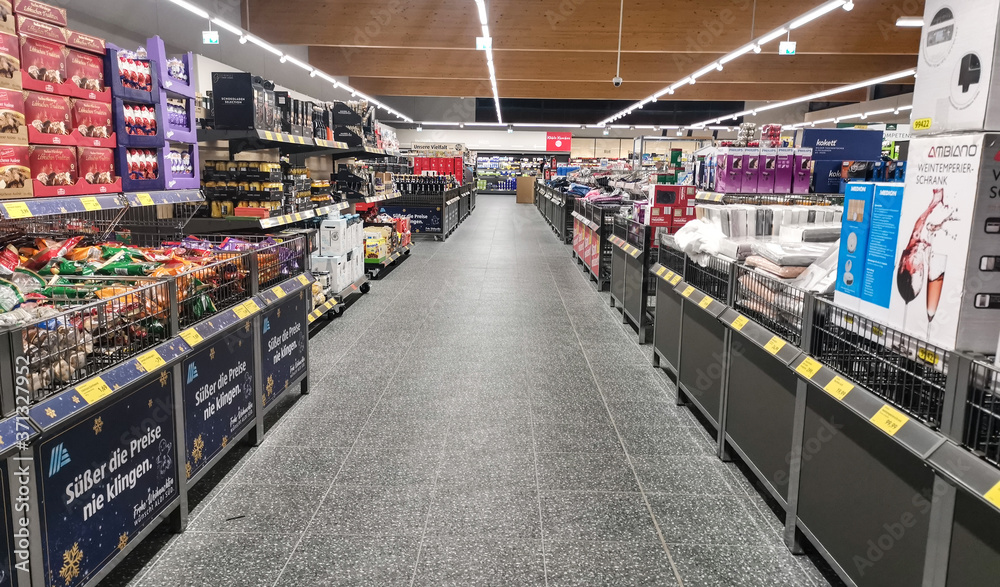- Supermarket spend breaches £12 billion barrier
- Sainsbury’s holds market share
- German discounters increase share to 16.3%
UK grocery sales hit a record £12.8 billion during the four weeks to 25 December 2022 despite the cost-of-living crisis as soaring prices helped top the £12 billion mark for the first time ever, according to latest Kantar market share data.
December’s grocery sales growth of 9.4% was the fastest rate recorded since February 2021, the data revealed. This was despite volumes falling 1% year-on-year, illustrating the impact of soaring prices hikes across supermarket shelves.
December’s inflation rate eased 0.2 percentage points versus November but was still 14.4%.
TRADING DOWN
Fraser McKevitt, Kantar’s head of retail and consumer insight, highlighted the shift in shopping behaviour as millions of consumers traded down. ‘Value sales were up significantly but grocery price inflation is the real driving factor behind this rather than increased purchasing,’ said McKevitt.
McKevitt pointed out this was the second month in a row that grocery price inflation had fallen, ‘raising hopes that the worst has now passed,’ but he also added that ‘it’s still a painfully high figure’ that illustrates the challenges shoppers are facing.
Kantar said buoyant Christmas sales were enjoyed ‘across the board’, with traditional grocers Tesco (TSCO), Sainsbury’s (SBRY), Asda and Morrisons speaking for more than two-thirds of all festive spending.
Asda’s sales were up 6.4%, closely followed by FTSE 100 constituents Sainsbury’s and Tesco, which achieved sales growth of 6.2% and 6% respectively.
Sainsbury’s always does well at Christmas and managed to hold its market share comfortably above 15%, though Morrisons’ sales slipped by 2.9%, resulting in year-on-year market share erosion from 10.1% to 9.1%.
Kantar noted this still represented Morrisons’ best performance since June 2021 and stands the retailer ‘in good stead for a return to growth in the new year’.
GERMAN DISCOUNTERS WINNERS AGAIN
Worryingly for Morrisons, Aldi remained the fastest growing grocer with 27% growth, taking its market share up from 7.7% this time last year to 9.1%, matching its more established rival.
And Lidl’s sales increased by 23.9%, moving its market share up by 0.9 percentage points to 7.2%.
This strong Christmas showing drove the German discounters’ combined share of the market up to 16.3% versus 14% last year and under 12% five years ago.
Elsewhere, the latest shop price index from the British Retail Consortium (BRC) and Nielsen showed that retail inflation in the UK stabilised at 7.3% in December, down 10 basis points versus the annual rate stated for November but still ahead of the three month average of 7.1%.
The downward driver month-on-month was non-food inflation, which eased back by 40 basis points to 4.4%, from 4.8% in November. In contrast, fresh food prices rose 70 basis points month-on-month to 15%.
Shore Capital’s Clive Black warned ‘continuing upward pressure from food can be expected to feed into the wider and more important ONS CPI figures at a time when many observers are seeking to call the top of the present inflationary cycle. In this respect the BRC-NielsenIQ dataset provides mixed news albeit not an extension of overall upward pressure.’




